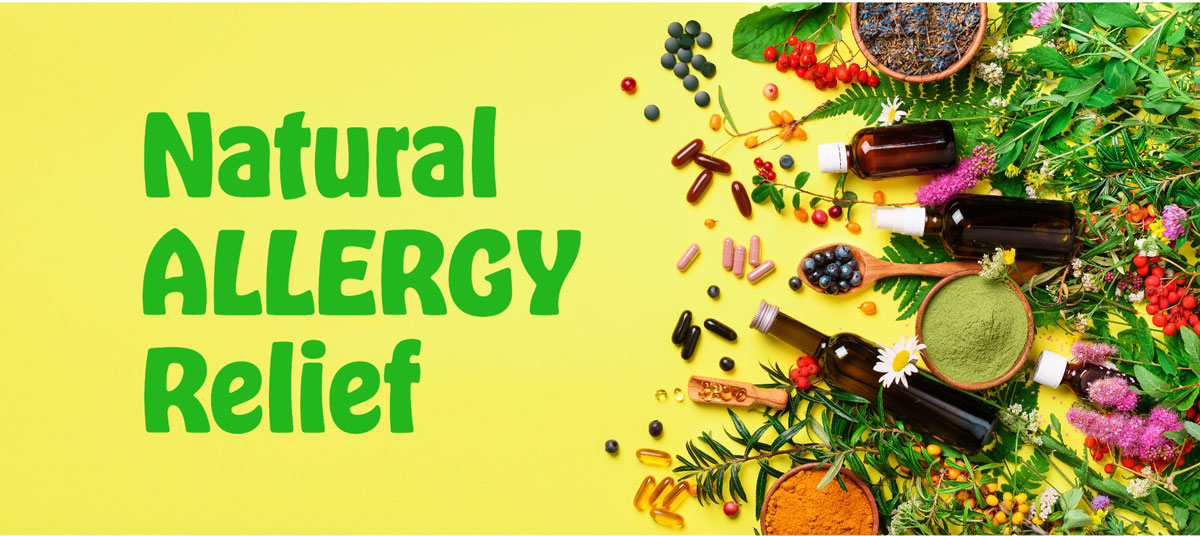Seasonal Allergy Relief, Naturally
Page top image size: 1000 x 500 px

Natural Allergy Relief Products at Good Earth
Natural supplements and remedies for seasonal allergies.
What can you do to find relief beyond the drugstore? Keep reading for Good Earth’s recommended natural remedies for allergy symptom relief.
All Winter long, we dream of Spring, when we can head outdoors to hike, fire up the grill, and enjoy farmers markets and local festivals. It’s the perfect time to get your Birkenstock sandals on your feet and enjoy the great outdoors!
However, for more than 24 million people in the U.S. with seasonal allergies, the pleasures of warm weather come at a cost: itchy eyes, runny noses, nasal congestion, sneezing and other varieties of respiratory symptoms.And, while beautiful Fall weather is always welcome, seasonal allergy symptoms can extend well into November in warmer regions.
A natural approach to allergy relief
When symptoms arise, many of us go straight to over-the-counter allergy medications. But alternative medicine offers a more natural approach that can sometimes provide relief on par with pharmaceuticals.
When it comes to natural remedies for seasonal allergies, however, there’s no one-size fits-all approach.
Every individual everyone responds differently to different interventions, so we suggest that people experiment and find what tends to work best for them. It’s good to conduct little ‘trials’ with ourselves. If one particular treatment doesn’t work, another one may.
Here are some great Natural Remedies to offset seasonal allergy symptoms. You can find all of these ingredients and formulas on the shelves of Good Earth Natural Foods in Indianapolis.
-Or on our website Good-Earth.com.
Stinging nettle (Urtica dioica)
Our first choice for a natural allergy supplement would be stinging nettle, a natural antihistamine that can be taken on an as-needed basis. In fact, many people find they only need to take it for a few days here and there.
In one study, 48% of participants who took capsules containing 300 mg of Stinging Nettle rated it equally or more effective than medications they previously used to treat allergy symptoms.
Quercetin
This plant chemical helps stabilize mast cells that release substances including histamine that contribute to inflammation and allergic reactions. But, unlike stinging nettle, quercetin helps prevent the onset of allergy symptoms, so you can take it daily as a preventive.
Found naturally in foods like unpeeled apples, berries, red grapes, black tea and red onions, quercetin is also widely available in supplement form. Because our bodies don’t easily absorb it on its own, most quercetin supplements include vitamin C or bromelain — a protein-digesting enzyme found in pineapple — to enhance effectiveness.
Curcumin
Local honey
The theory is that consuming Local Honey might act as a natural allergy shot by exposing you to the allergens triggering your symptoms. But, most people who get seasonal allergies react to tree and grass pollen, not the flower pollen bees collect.
While scientific evidence proving the effectiveness of local honey is scarce — only a few studies have shown that eating or applying honey offers relief — we feel it is a safe and reasonable option for most people if they think it’s beneficial. However, some people who are allergic to pollen or bee stings may also be allergic to honey. And children under 1 year of age should never be given honey, because of a risk of botulism.
Back to Blog